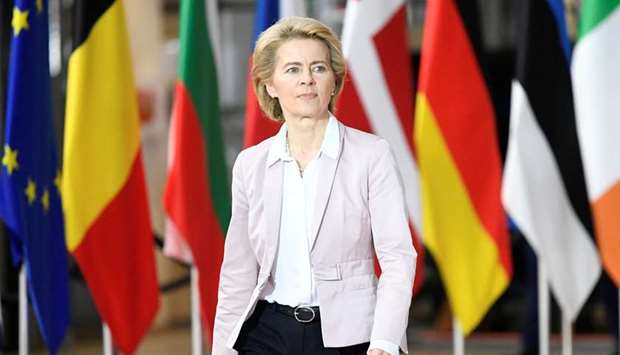The European Union is willing to discuss a proposal, now backed by the United States, to waive intellectual property rights for Covid-19 vaccines, European Commission president Ursula von der Leyen said on Thursday.
The head of the EU executive said the bloc's vaccination effort was accelerating, with 30 Europeans inoculated per second, while exporting more than 200 million vaccine doses to the rest of the world.
‘The EU is also ready to discuss any proposals that addresses the crisis in an effective and pragmatic manner,’ von der Leyen said in a speech to the European University Institute in Florence.
‘That's why we are ready to discuss how the US proposal for a waiver on intellectual property protections for Covid-19 vaccines could help achieve that objective.’
South Africa and India made the initial vaccine waiver proposal at the World Trade Organization in October, gathering support from a large number of developing countries who say it is a vital step to make vaccines more widely available.
The World Health Organization said in April that of 700 million vaccines globally administered, only 0.2% had been in low-income countries.
Until now, the European Union has been with a group of countries, many of them home to large pharmaceutical companies, including Britain and Switzerland, that have opposed the waiver.
They argue it would undermine incentives for companies who have produced vaccines in record time to do so in a future pandemic. They also say waiving patents would not instantly resolve the problem, with a lack of sufficient manufacturing capacity.
Vaccine-making is also complicated, as evidenced by production problems of AstraZeneca, and would also require a transfer of technology, know-how and personnel.
The United States said on Wednesday it supported the waiver, although trade chief Katherine Tai cautioned that negotiations would take time.
Von der Leyen said that, in the short run, the European Union called upon all vaccine producing countries to allow exports and to avoid measures that disrupt supply chains.

